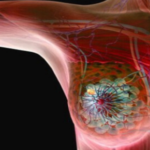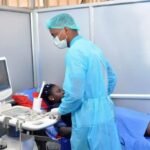Scientists studying a common Childhood Cancer have made a major breakthrough that could lead to a cure for some youngsters who would not have survived the condition.
An international study, involving Newcastle University, UK, has for the first time found a genetic marker in tumours from patients with high-risk neuroblastoma.
Research published in the journal of clinical oncology has identified that alterations in the neuroblastoma’s ALK ( anaplastic lymphoma kinase) gene are associated with a significantly poorer prognosis for children with high-risk disease.
Experts say that identifying this important genetic marker means patients should be put on ALK inhibitor at the time of diagnosis with the hope of a cure.
Personalized treatment:
Professor, Deborah Tweddle, from the Newcastle University Center for Cancer and Honorary Consultant at the Newcastle Hospital NHS Foundation Trust, led the UK part of the study.
Read also: New findings Offer Improved Therapy of Early Stage, BRCA mutations – associated Breast Cancer
She said, “ By identifying ALK as a genetic marker associated with the likelihood of a poorer outcome within the high-risk group of patients, it means we can treat these patients differently from the outset”.
“ Most excitingly there are new treatments that target the ALK protein itself, used in other cancer that can now be used for patients with high-risk neuroblastoma with ALK gene abnormalities”.
“ This research is an excellent example of personalized medicine, by treating those patients with an ALK genetic abnormality with an ALK inhibitor, we are tailoring the treatment to the patient’s individual tumour type”.
“ By combining an ALK inhibitor with the other treatment we currently give for high-risk neuroblastoma, we hope to be able to cure more patients with this aggressive childhood cancer”.
Neuroblastoma is a cancer of the nervous system that mainly affects children under five, it often begins in the adrenal gland, but in around half of the cases has spread throughout the body when it is diagnosed, despite treatment including high dose chemotherapy, surgery, radiotherapy and immunotherapy.
Several European countries took part in the study and the UK- arms of the trial have been based at Newcastle University with the test being carried out with the Newcastle Genetic Lab, supported by Grant from Solving Kids Cancer and Neuroblastoma UK.
Study’s findings:
Experts carried out ALK testing on as many Neuroblastoma as possible from patients treated on the high-risk trial and pooled this data with that from National Genetic Labs from 19 other countries.
The study showed that ALK mutations are present in about 14 per cent of patients newly diagnosed with high-risk neuroblastoma, and nearly 14 per cent have amplification of this gene.
More importantly, these abnormalities are associated with a lower rate of survival and they are therefore important prognostic markers that could be targeted by treatment.
“As part of the next European Clinical Trial for high-risk neuroblastoma, we are going to treat all patients with an ALK abnormality found in their tumour with an ALK inhibitor in addition to standard treatment”, Professor Tweddle added.
The breakthrough comes at the launch of the Newcastle University Cancer Fund, a new fundraising efforts to inspire the next generation of cancer researchers to train and work at Newcastle for the benefits of people living with cancer locally as well as sending their research worldwide.
The fund will work with cancer researchers at the very earliest stages of their studies and see them through to the point where they become established cancer researchers.
By: Peace Chigozie
























































